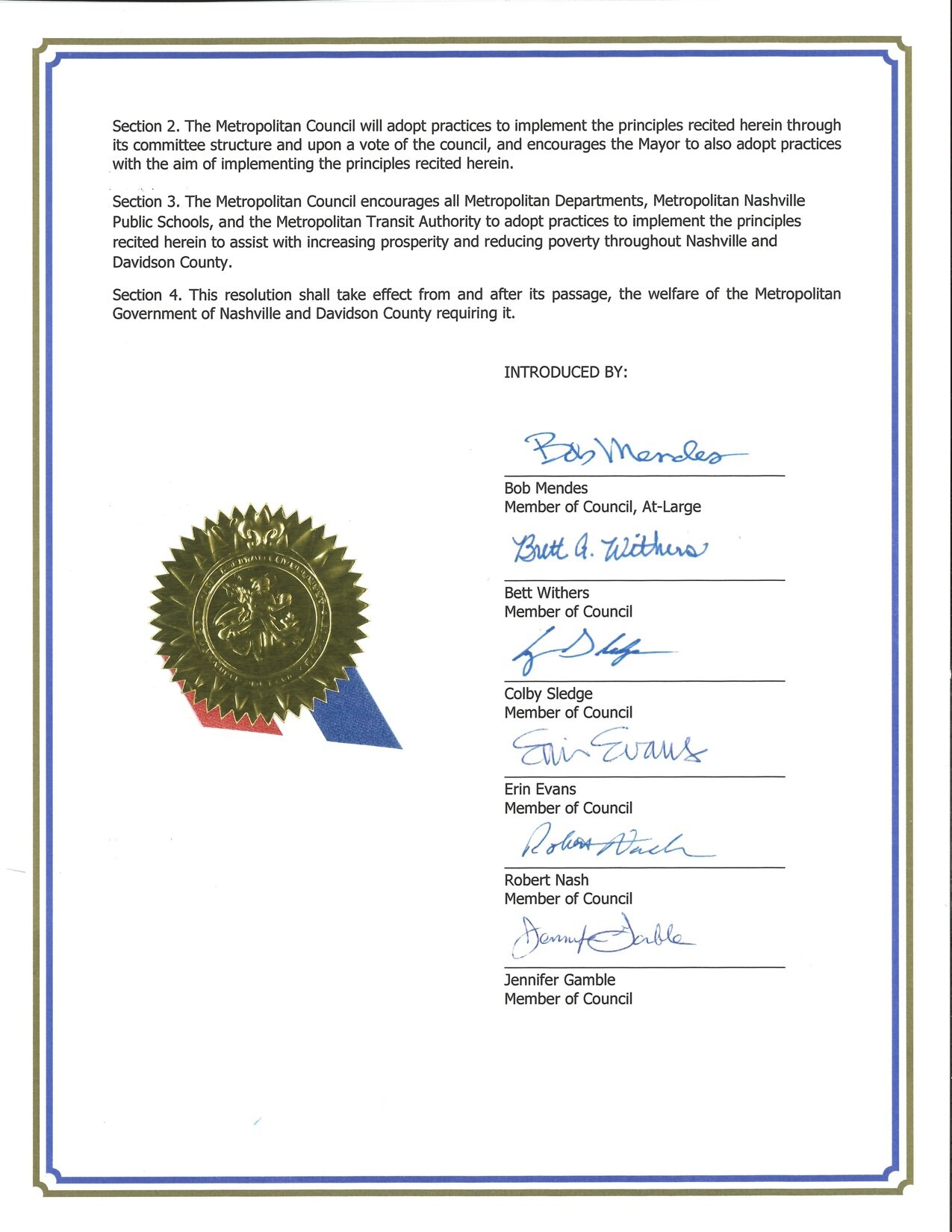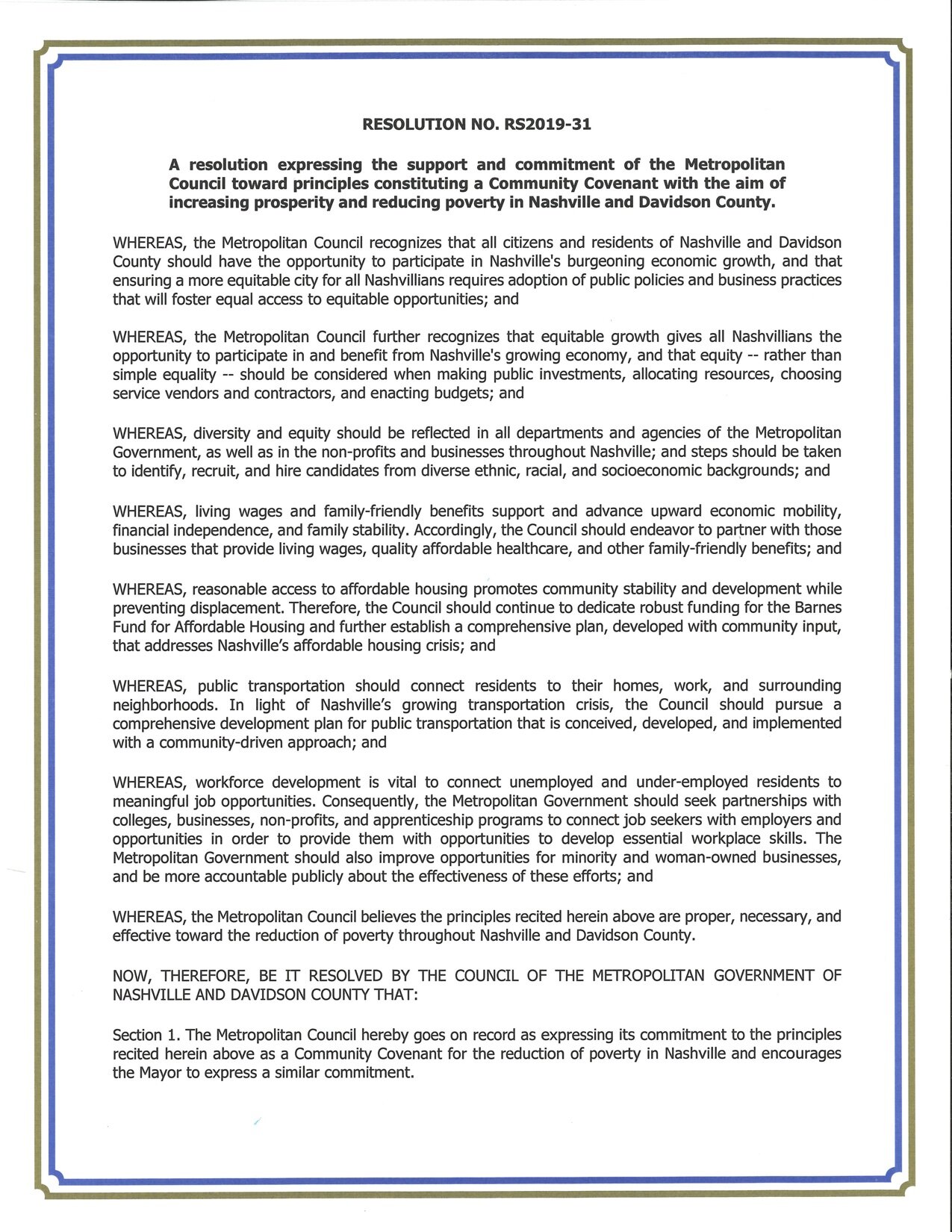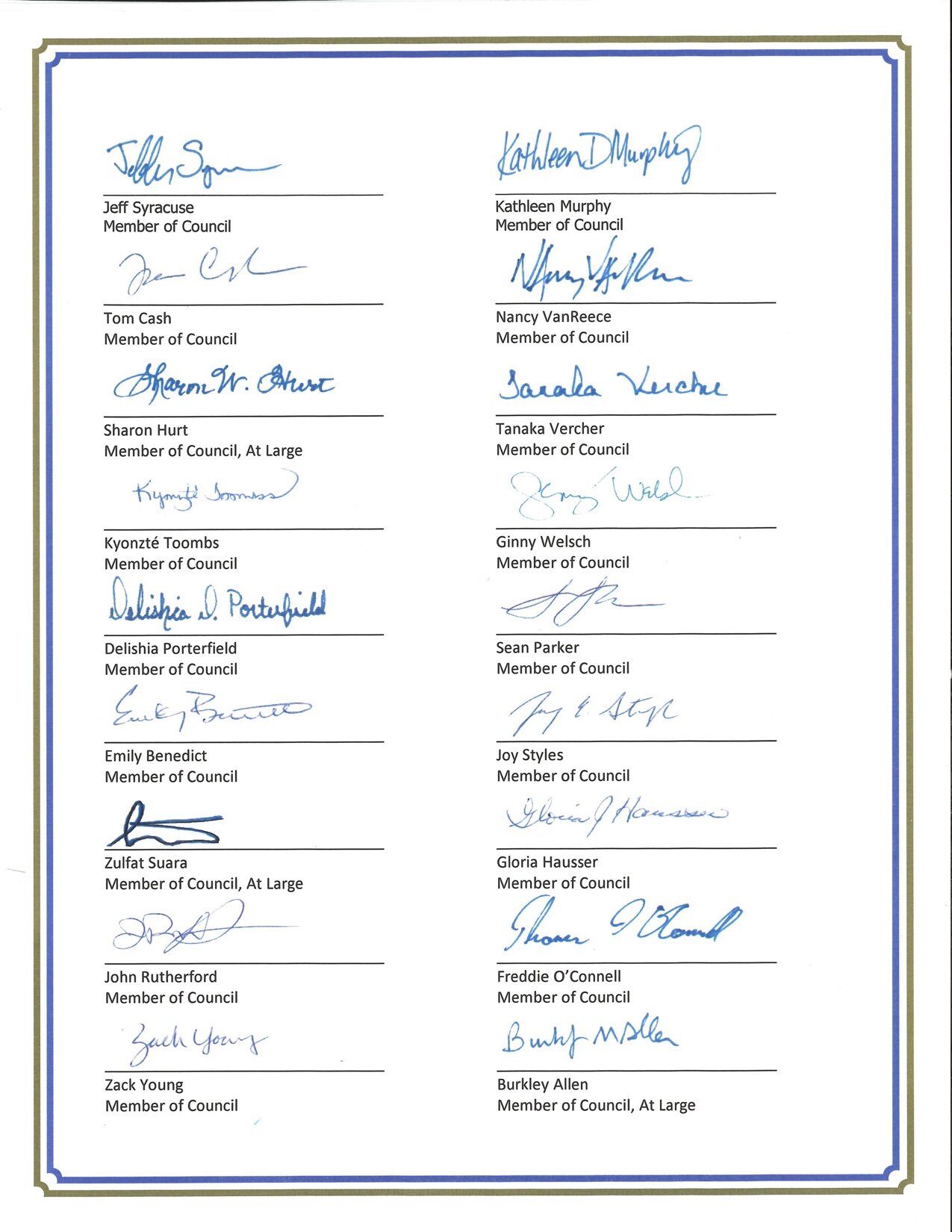Tennessean — Sunday, November 3, 2019
A Voice for the Reduction of Poverty and its coalition partners thank and applaud the new Metro Council, lead sponsor Councilman Bob Mendes, and the 23 co-sponsors for unanimously passing Resolution RS2019-31. This resolution creates a Community Covenant for Nashville and an ethos that commits our city to increasing its efforts to reduce poverty, promote fairness and equity in the workplace, and to equitably invest Metro Government resources.
While aspirational, Metro Council’s adoption of this Covenant and its signature by Mayor Cooper signals a new and important direction for Nashville. It reflects a commitment from our city’s leaders to advance six fundamental principles:
Livable wages and family-friendly workplace benefits,
Affordable housing
Workforce development and placement
Equitable growth that benefits all Nashvillians
Public transportation that connects home to work and neighborhood to neighborhood
Diversity and equity.
These principles, along with each of their specific policy recommendations, provide a blueprint for building a Nashville that works for all Nashvillians as well as milestones by which to measure and assess progress.
Why does Nashville need a Community Covenant resolution?
For years, Nashville’s population and economy has grown rapidly but not all Nashvillians have reaped the economic benefits of this growth. Mayor Cooper himself has stated that his primary goal as Mayor is “to build a Nashville that works for everyone.” And in a recent Op-Ed, David Plazas argued that “all Nashvillians deserve a shot at enjoying our city’s prosperity.” He then urged Nashville’s business community to help make that vision a reality.
A recent analysis in CityLab found, between 2012 and 2017, Nashville ranked 9th out of the top 50 Metro areas in attracting college graduates. Many of these new residents earn high salaries and compete for limited housing, often near the urban core. This drives up the price of housing, reinforcing urban inequality and driving displacement of working and middle class residents to outlying neighborhoods.
Wages for those not employed in more lucrative occupations are finally starting to rise, albeit slowly. However, the cost of housing and healthcare has vastly outpaced wage growth. Consequently, many hard working Nashvillians are left treading water.
The challenge now is for the new council and the new mayor to implement targeted and transparent policies that will make the goals of the Covenant a reality for all Nashvillians. To that end, A Voice for the Reduction of Poverty and its coalition partners recommend the adoption of an equity lens process to city policymaking, particularly when it comes to the budget and capital expenditures.
What is an equity lens?
According to Portland’s Office of Equity, an equity lens is a policymaking process that helps “engage communities of color in decision-making, understand the root causes of existing disparities, and identify how our work can reduce these disparities.” At its core, the equity lens concept recognizes that the overall health of a city is negatively affected by the barriers and limited opportunity structures that hold back some its residents.
Portland, Seattle, and San Antonio are already using an equity-based approach to their city budget. These cities, along with Minneapolis, Washington D.C., and Austin have also created an Office of Equity within local government that is devoted to advancing the equitable allocation of public money, to promoting inclusive hiring and procurement practices, and to incorporating community input into budgeting and policymaking.
The Community Covenant resolution is an important step towards building a Nashville that works for all Nashvillians. Now it’s time for the Metro Council and the Mayor’s office to take action to implement policies and practices that will lead to the realization of the principles in the Community Covenant.
Doing so will make Nashville a more prosperous, equitable city for all.









